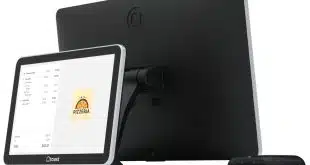By Jim Daly
@DTPaymentNews
Mobile wallets eventually will get the contactless terminals and other infrastructure they need to attract consumers, according to an executive with Alphabet Inc.’s Android Pay. Their ultimate success, however, will depend on the value they offer merchants and consumers.
“It’s still all about value creation,” Jack Connors, who manages merchant relationships for the Android Pay mobile-pay service, said at the 2016 Mobile Payments Conference in Chicago Tuesday.
As many other observers have noted, Connors said the coming of EMV chip card payments to the U.S. is expanding the market for contactless smart-phone payments because most of the new EMV point-of-sale terminals also can handle near-field communication (NFC) radio technology, which many smart phones now have.
Citing recent industry data, including some from Urban Airship Inc., a mobile-marketing technology firm, Connors noted that while EMV still has a long way to go, card numbers and EMV-accepting merchant locations are on a strong upswing. For example, while only 30% of U.S. merchant locations take chip cards, the number is up 374% from last October. And 80% of U.S. payment cards have a chip, up 88% from October 2015, when the card networks’ EMV liability shifts for the point of sale took effect.
“The bottom line here is EMV is working,” said Connors. And while POS payment hardware and software could be in a “state of flux” for the next couple of years as the EMV transition plays out, he said “that’s an opportunity for wallets.”
So while the outlook for infrastructure that supports NFC-based mobile wallets is good, the biggest pitfall the wallets face will be convincing merchants and consumers that the wallets are worth using. Merchants want mobile wallets to help them acquire shoppers, deepen customer relationships, and ultimately increase the frequency of customer visits and purchases.
And so far, the most notable success stories in mobile wallets are the private-label wallets from Starbucks Corp. and Dunkin’ Brands Inc., issuer of the Dunkin’ Donuts mobile app, according to Connors. Those wallets make it easy for customers to simultaneously pay and earn rewards. “People who love Starbucks coffee get free coffee … the ‘Pays’ [a reference to such general-purpose mobile wallets as Android Pay, Apple Pay, and Samsung Pay] have to find a way to do that.”
But Android Pay is making progress, he noted. For example, Walgreens, the U.S. drug-store chain of Walgreen Boots Alliance Inc., on Aug. 22 announced that it had integrated its 85-million-member Balance Rewards loyalty program into Android Pay. That means that a customer with a smart phone loaded with Android Pay that’s linked to Balance Rewards can walk into a Walgreens store and get store notifications. At the checkout counter, even without having the Walgreens app, the user can tap her phone on the POS terminal to earn Balance Rewards points and then tap again to pay.
“This is a really exciting type of ability that we’re happy to have brought to market with Walgreens,” Connors said.
Android Pay also works with merchants to enhance customer relations, according to Connors. For example, the post-transaction receipt for an Android Pay purchase at McDonald’s Corp. locations can generate an offer for the customer to download the McDonald’s mobile app, which Connors called a “really effective way for merchants to engage.”
According to Connors, merchants aren’t all that interested in choosing sides among the ‘Pays,’ they just want an effective presence on the phones consumers carry. “The days of the religious wars are over … they want to be where the shoppers are.”





